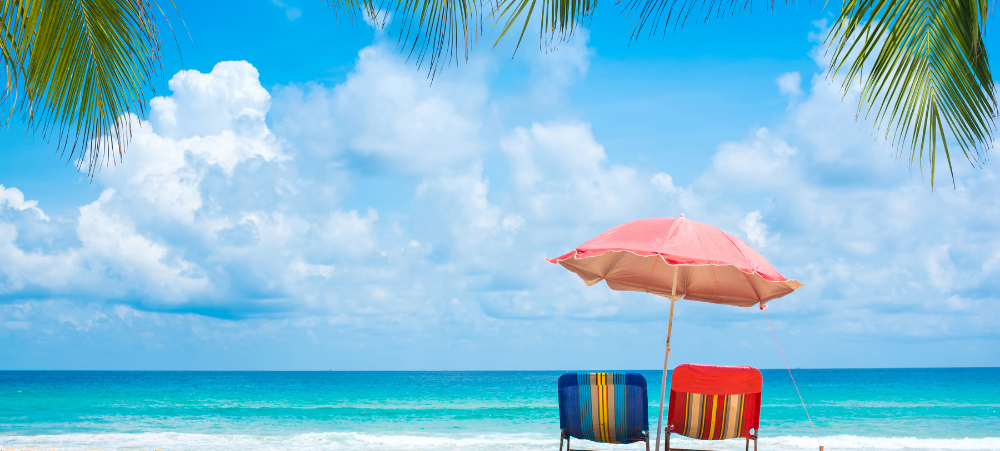After enduring three waves of COVID-19, the vaccine programme now rolling out and the travel and hospitality industry re-opening, now might be the ideal time to plan a de-stressing, year-end family holiday.
Many families are still getting over cabin fever, the stress and anxiety associated with the disruptions to work, education, anticipated social events that were cancelled, or at worst, the loss of someone close.
A Human Sciences Research Council (HSRC) study in 2020 found that during the first lockdown period 33% of South Africans were depressed. This is double the level of depression and anxiety that a 2018 study found. The HSRC also reported that 45% of respondents were fearful and 29% experienced loneliness.
Research supports the benefits of taking a holiday to counter depressive symptoms, with one study finding that getting away is far more effective than passive leisure activity. Scientists have also found that the psychological benefits of a holiday can last for up to a month after returning home.
Besides finally having something to look forward to and the mental health benefits of a holiday, another consideration is the deals that are available as the hard-hit travel and hospitality sectors try to lure back customers.
Personal loan specialists, DirectAxis, canvassed some industry experts to find out how you might regain some sanity while getting the best value for your holiday budget.
Be an early bird
If you’re planning to fly to your destination, the good news is that with British Airways (operated by Comair), kulula.com and South African Airways all flying again, there’s increased competition and more seats to fill, which should keep airfares in check.
Even so, don’t wait too long before booking. Airlines sell different fare types within each cabin. Typically, the cheapest fares have conditions attached to them, such as penalties for changes to the booking or a limited baggage allowance. The more restrictions there are, the less you’ll pay.
Airlines know these cheaper fares will sell quickly. To discourage customers from changing their minds at the last minute and leaving the airline with an unsold seat, they charge hefty fees for cancellations or changes. If you’re sure about your arrangements and book early, you can snap up these lower fares.
The other tip is to try to fly during periods of lower demand. Although the year-end break is always going to be busier and fares are likely to be slightly higher than during quieter periods, most people want to be on morning or evening flights so they can make the most of their day. You may be able to save some money if you choose less popular flights during the day or fly on Christmas Day or New Year’s Eve when demand is typically low. Avoid popular flights at the start or end of school holidays which are likely to be more expensive.
Expand your horizons
The successive lockdowns meant that international tourism all but dried up. While there is now some interest from North America and some European markets with less stringent travel restrictions, industry insiders think the international market won’t recover until after 2023.
This means that some top-end hotels, guest houses and private game lodges which had previously depended on international tourism over the South African summer peak season have had to re-think their sales and marketing strategy to attract local guests.
The result is that some of these experiences which domestic travellers may have previously not considered are now much more affordable.
With not all international flights having returned and some countries still restricting international travel, now could be the time you could enjoy a once-in-a-lifetime, world-class experience in your own country at a fraction of what you would have paid pre-pandemic.
Do your homework
Shafeeqah Isaacs, head of financial education at DirectAxis, says the travel experts also provided some sound travel tips:
- Do some research before you commit. Compare airfares, hospitality rates and understand what is included and what the penalties are for changes or cancellations. Once you’ve narrowed down your choices double check that you’ll get what the website promises on review sites such as TripAdvisor.
- The internet is a valuable tool, but there’s no substitute for first-hand experience. If you know someone who has visited your destination find out everything you can, good and bad. That way you’ll know what not to miss and can avoid repeating any mistakes they made.
- Once you’ve booked your trip, plan what you’re going to do when you get there. If you can, pre-book. It could save you money and also avoid disappointment if popular activities are booked up on the day. It will also help you stick to your travel budget. Doing things on a whim can be expensive.
- When you’ve finalised your plans and booked your trip, consider what you have left of your budget to spend on your holiday. That way you’ll be able to savour the memories as you ease back into daily life, rather than anxiously waiting for January’s paycheque because you’ve over-spent.
“A family holiday may not be as costly as you think and will help put the anxieties and stresses of the past 18 months behind you. You’ll also be supporting the recovering domestic travel and hospitality sector,” says Shafeeqah.
We understand that there are many aspects that encompass a Mother, Father or Child and strive toward providing resources and services that accommodates this.
Our content is aimed to inform and educate families on issues starting from pregnancy through to the challenges of the teen-age years.
- Say Hello to the Ultimate Holiday Brunch Bite - December 17, 2025
- Tiny Toons Looniversity Returns: Meet the Voice Behind Plucky and Hamton! - December 12, 2025
- From Pain to Possibility: Panado®’s New Marketing Campaign, Highlights The Joy Of Pain Relief - December 10, 2025





